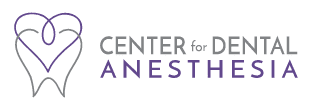
More Dental Health Articles
Aging and Dental Health
Not so long ago it was taken for granted that serious memory impairment was a normal part of aging. While some memory loss is common as people get older, and while we can joke about “senior moments”, the notion that mental decline is inevitable is just plain wrong. Yet mental decline does happen, and far too often the effects of aging have a negative impact on a person’s dental health.
A lot of people aren’t even sure how to refer to mental decline. They call it dementia, or even the outdated “senility”. But dementia is really a general term that describes a group of symptoms like reduced attention span, impaired learning ability, and – yes – memory.
Regardless of what it’s called, dementia is a major disorder with many implications. “As dementia progresses…oral care can be forgotten”, wrote the authors of a paper on aging and dental care, published by the British Dental Association. “There can be a disinterest by the individual affected by dementia in dental maintenance and a reduction in the physical ability of the individual to maintain their oral health and communicate dental problems.”
While dementia is a generic term, Alzheimer’s disease accounts for sixty to eighty percent of dementia cases in older citizens. Nearly five and a half million Americans are living with Alzheimer’s disease.
Oral Care
Because dementia is a progressive condition, the risk of other health issues stemming from it increase as time goes by. Balance problems, for example, can result in a greater risk of falling. It is therefore important to establish a good dental hygiene routine in someone who has been diagnosed with dementia.
Anyone who has been diagnosed should not be living alone. During the early stages, they should be taking care of their teeth and gums, and should be in control for as long as it is possible. They might, however, need some supervision, or need to be reminded to brush and floss.
They may also need the caregiver to give them the brush and toothpaste, and even show them what they need to do. If there are coordination issues, it may be easier to use an electric toothbrush. The person with dementia may be a denture wearer. In such cases, it may be necessary to remind them to put them in; they may also need some assistance inserting them or keeping them clean.
As the person’s dementia progresses, they may lose the ability to brush and floss on their own. If that happens, it may be up to a caretaker to do it for them. Their caregiver or loved ones should be on the lookout for signs such as: not wearing dentures, disrupted sleep, loss of appetite, or pulling at the face or mouth.
Help Is Nearby
The rate of dementia among Americans is increasing. During the next fifty years, the number of people affected by Alzheimer’s disease alone is projected to triple. That means that more and more people will be need the services of dental professionals who are equipped to treat dementia patients.
No matter your age or condition, good dental health is important.
Other Articles You May Find of Interest...
- Let’s Smile Dental’s 7&Up Club
- Strengthening Smiles: Understanding the Importance of Splinting Periodontally Involved Teeth
- Understanding Soft Tissue Grafting: A Key To Periodontal Health
- New Solutions for Dentures and Dental Implants
- Cerec Dental Technology
- Commonly Treated Orthodontic Problems
- Can You Benefit From Braces?

















